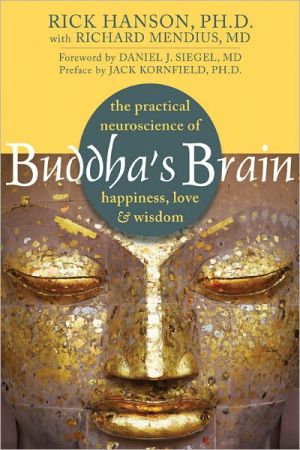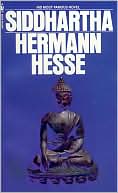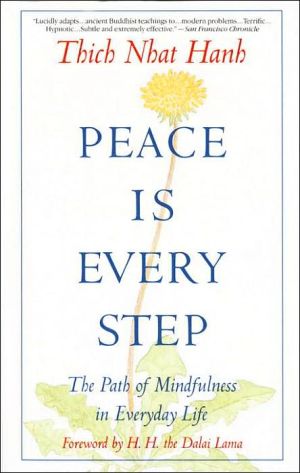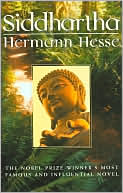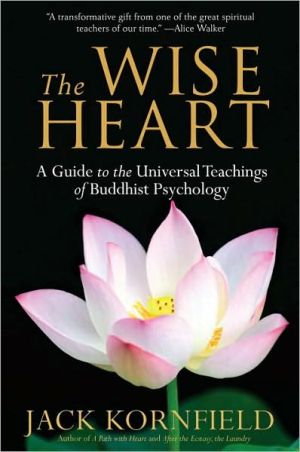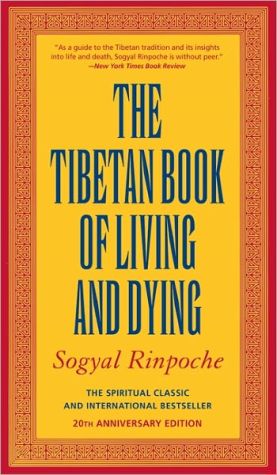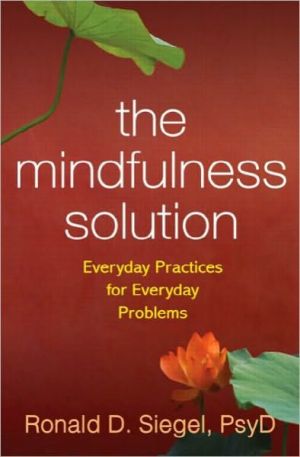Buddha's Brain: The Practical Neuroscience of Happiness, Love, and Wisdom
If you change your brain, you can change your life.\ Great teachers like the Buddha, Jesus, Moses, Mohammed, and Gandhi were all born with brains built essentially like anyone else’s—and then they changed their brains in ways that changed the world. Science is now revealing how the flow of thoughts actually sculpts the brain, and more and more, we are learning that it's possible to strengthen positive brain states.\ By combining breakthroughs in neuroscience with insights from thousands of...
Search in google:
In Buddha's Brain, a clinical psychologist and a senior neurologist explain how the brain benefits from contemplative practice and show readers how to develop greater happiness, love, and wisdom by drawing from breakthroughs in modern neuroscience. Publishers Weekly The brain physiology associated with spiritual states has been fertile ground for researchers and writers alike. Neuropsychologist andmeditation teacher Hanson suggests that an understanding of the brain in conjunction with 2,500-year-old Buddhist teachings can help readers achieve more happiness. He explains how the brain evolved to keep humans safe from external threats; the resulting “built-in negativity bias” creates suffering in modern individuals. Citing psychologist Donald Hebb's conclusion that “when neurons fire together, they wire together,” Hanson argues that the brain's functioning can be affected by simple practices and meditation to foster well-being. Classic Buddhist concepts such as the “three trainings”—mindfulness, virtuous action and wisdom—frame Hanson's approach. Written with neurologist Mendius, the book includes descriptions and diagrams of brain functioning. Clear instructions guide the reader toward more positive thoughts and feelings. While the author doesn't always succeed at clarifying complex physiology, this gently encouraging “practical guide to your brain” offers helpful information supported by research as well as steps to change instinctive patterns through the Buddhist path. (Nov.)
Foreword vPreface viiAcknowledgements ixIntroduction 1Chapter 1 The Self-Transforming Brain 5Part 1 The Causes of SufferingChapter 2 The Evolution of Suffering 23Chapter 3 The First and Second Dart 49Part 2 HappinessChapter 4 Taking in the Good 67Chapter 5 Cooling the Fires 79Chapter 6 Strong Intentions 97Chapter 7 Equanimity 109Part 3 LoveChapter 8 Two Wolves in the Heart 121Chapter 9 Compassion and Assertion 137Chapter 10 Boundless Kindness 157Part 4 WisdomChapter 11 Foundations of Mindfulness 177Chapter 12 Blissful Concentration 191Chapter 13 Relaxing the Self 205Appendix Nutritional Neurochemistry Jan Hanson, L.Ac. 227References 235
\ From the Publisher"A wonderfully comprehensive book. The authors have made it easy to understand how our minds function and how to make changes so that we can live happier, fuller lives."\ —Sharon Salzberg, author of Lovingkindness\ "Solidly grounded in the latest neuroscientific research, and supported by a deep understanding of contemplative practice, this book is accessible, compelling, and profound—a crystallization of practical wisdom!"\ —Philip David Zelazo, PhD, Nancy M. and John E. Lindahl Professor at the Institute of Child Development, University of Minnesota\ "This is simply the best book I have read on why and how we can shape our brains to be peaceful and happy. This is a book that will literally change your brain and your life."\ —Jennifer Louden, author of The Woman’s Comfort Book and The Life Organizer\ "Buddha’s Brain is a significant contribution to understanding the interface between science and meditation in the path of transformation. Illuminating."\ —Joseph Goldstein, author of A Heart Full of Peace and One Dharma\ "Buddha’s Brain is compelling, easy to read, and quite educational. The book skillfully answers the central question of each of our lives—how to be happy—by presenting the core precepts of Buddhism integrated with a primer on how our brains function. This book will be helpful to anyone wanting to understand time-tested ways of skillful living backed up by up-to-date science."\ —Frederic Luskin, PhD, author of Forgive for Good and director of Stanford Forgiveness Projects\ "I wish I had a science teacher like Rick Hanson when I went to school. Buddha’s Brain is at once fun, fascinating, and profound. It not only shows us effective ways to develop real happiness in our lives, but also explains physiologically how and why they work. As he instructs us to do with positive experiences, take in all the good information this book offers and savor it."\ —James Baraz, author of Awakening Joy and cofounder of Spirit Rock Meditation Center\ "With the mind of a scientist, the perspective of a psychologist, and the wise heart of a parent and devoted meditator, Rick Hanson has created a guide for all of us who want to learn about and apply the scintillating new research that embraces neurology, psychology, and authentic spiritual inquiry. Up-to-date discoveries combined with state-of-the-art practices make this book an engaging read. Buddha’s Brain is at the top of my list!"\ —Richard A. Heckler, PhD, assistant professor at John F. Kennedy University in Pleasant Hill, CA\ "An illuminating guide to the emerging confluence of cutting-edge neuropsychology and ancient Buddhist wisdom filled with practical suggestions on how to gradually rewire your brain for greater happiness. Lucid, good-humored, and easily accessible."\ —John J. Prendergast, PhD, adjunct associate professor of psychology at California Institute of Integral Studies and senior editor of The Sacred Mirror and Listening from the Heart of Silence\ "Buddha’s Brain will show you how mental practices, informed by the contemplative traditions, can increase your capacity for experiencing happiness and peace. This book provides a scientific understanding of these methods, and clear guidance for practices that cultivate a wise and free heart."\ —Tara Brach, PhD author of Radical Acceptance\ \ \ \ \ \ Publishers WeeklyThe brain physiology associated with spiritual states has been fertile ground for researchers and writers alike. Neuropsychologist andmeditation teacher Hanson suggests that an understanding of the brain in conjunction with 2,500-year-old Buddhist teachings can help readers achieve more happiness. He explains how the brain evolved to keep humans safe from external threats; the resulting “built-in negativity bias” creates suffering in modern individuals. Citing psychologist Donald Hebb's conclusion that “when neurons fire together, they wire together,” Hanson argues that the brain's functioning can be affected by simple practices and meditation to foster well-being. Classic Buddhist concepts such as the “three trainings”—mindfulness, virtuous action and wisdom—frame Hanson's approach. Written with neurologist Mendius, the book includes descriptions and diagrams of brain functioning. Clear instructions guide the reader toward more positive thoughts and feelings. While the author doesn't always succeed at clarifying complex physiology, this gently encouraging “practical guide to your brain” offers helpful information supported by research as well as steps to change instinctive patterns through the Buddhist path. (Nov.)\ \
